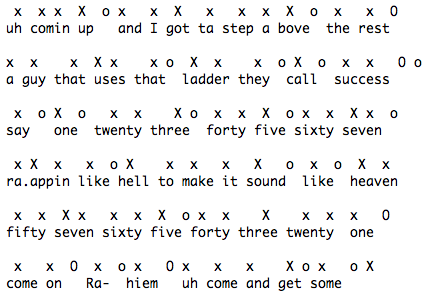From a Language Log article on musical onomatopoeia:
Ryan Y. wrote to ask about words for “the sounds instruments make”. He points out that in English, “Drums go ‘rat-a-tat’ and ‘bang,’ bells go ‘ding dong,’ and sad trombones go ‘wah wah’”, but he notes that there are some gaps that he finds surprising:
Few instruments are as popular in the US as the guitar, but I have no idea what sound a guitar makes. There are gaps even for the standard high school band/orchestra instruments. What sound does a violin make? A flute? For that matter, what sound does an orchestra make? A rock group?
Is there a compelling explanation as to why we have words for the sounds of bells, trombones, and tubas, but not guitars? Why do we lack words for the sounds of groups of instruments? Do, say, Italians have a word for the sound a violin makes? Do the French have a word for the sound of a French Horn?
Good insight in the comments about different possible sound associations. For me, the question just makes me think of Eh Cumpari!, a novelty song that got drilled into my head by the overhead music system at the bookstore I used to work at.

